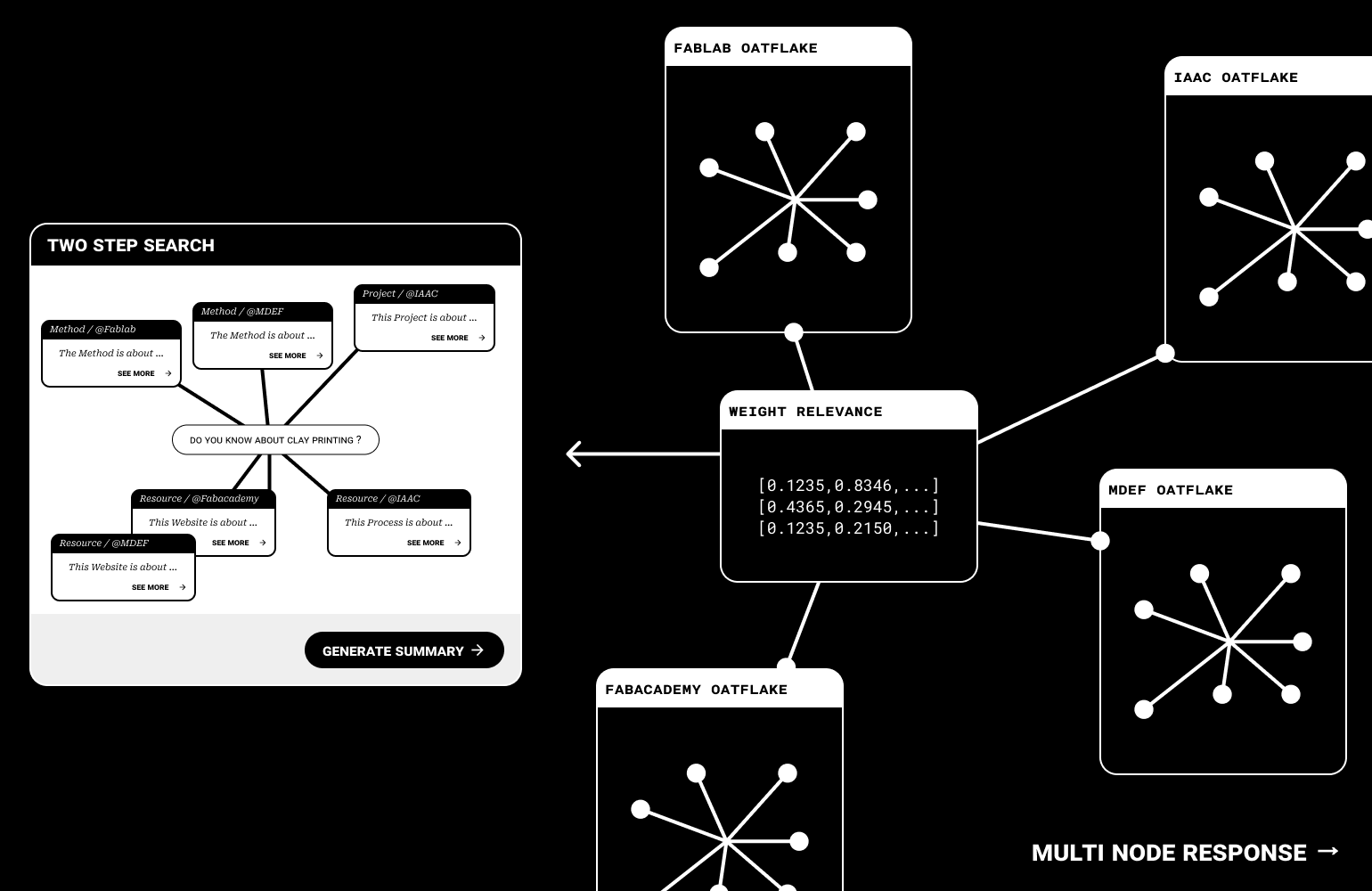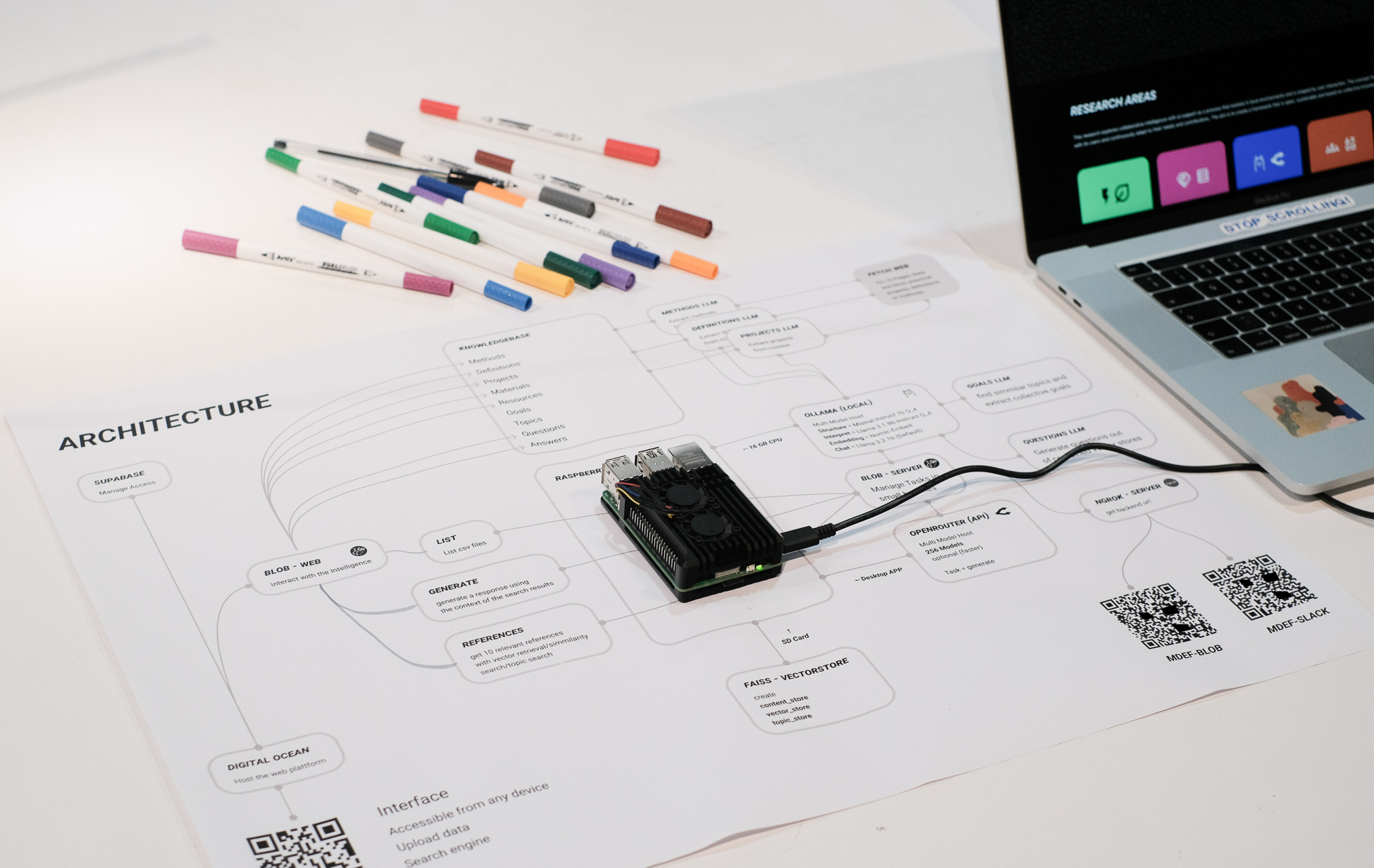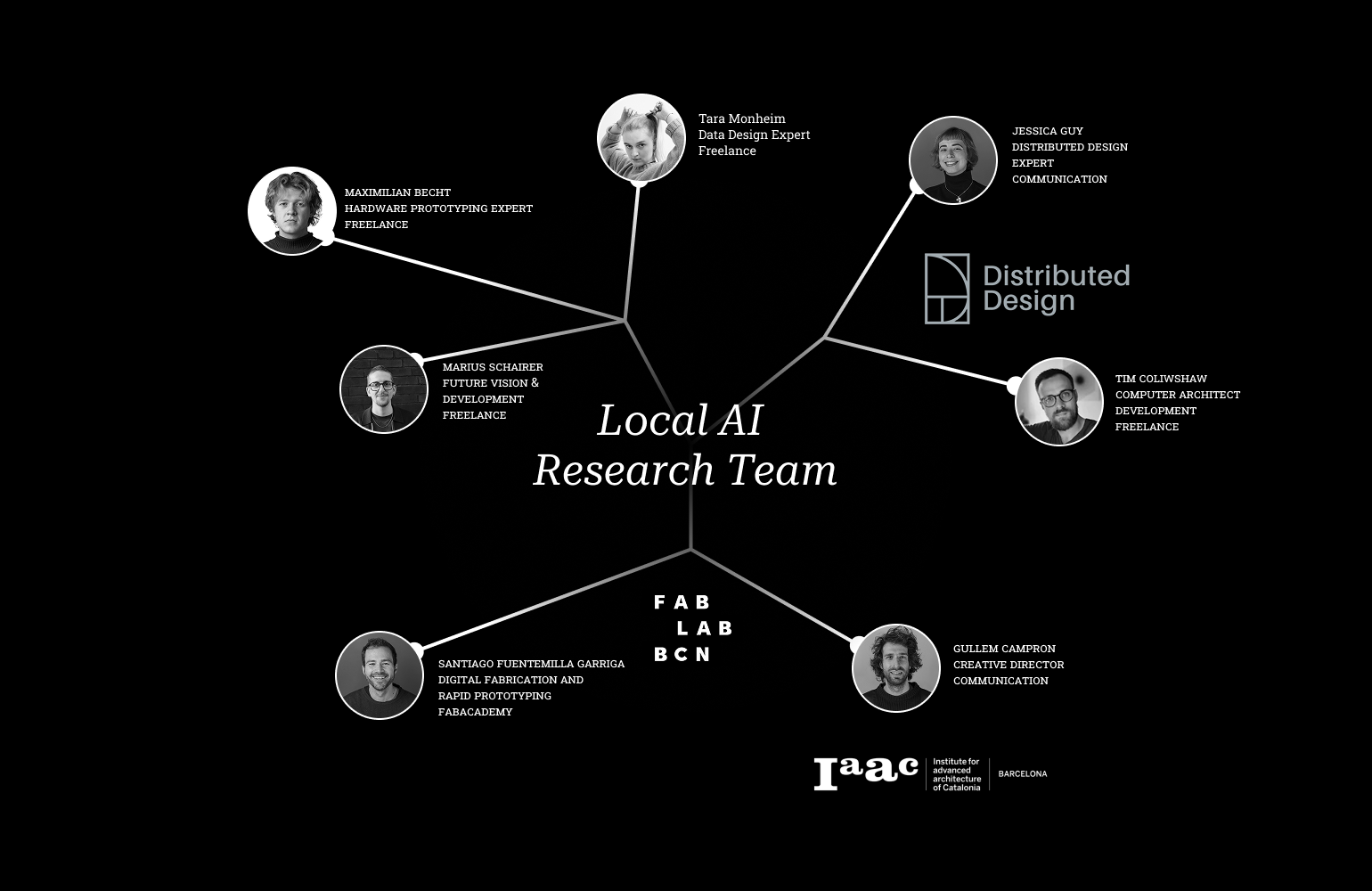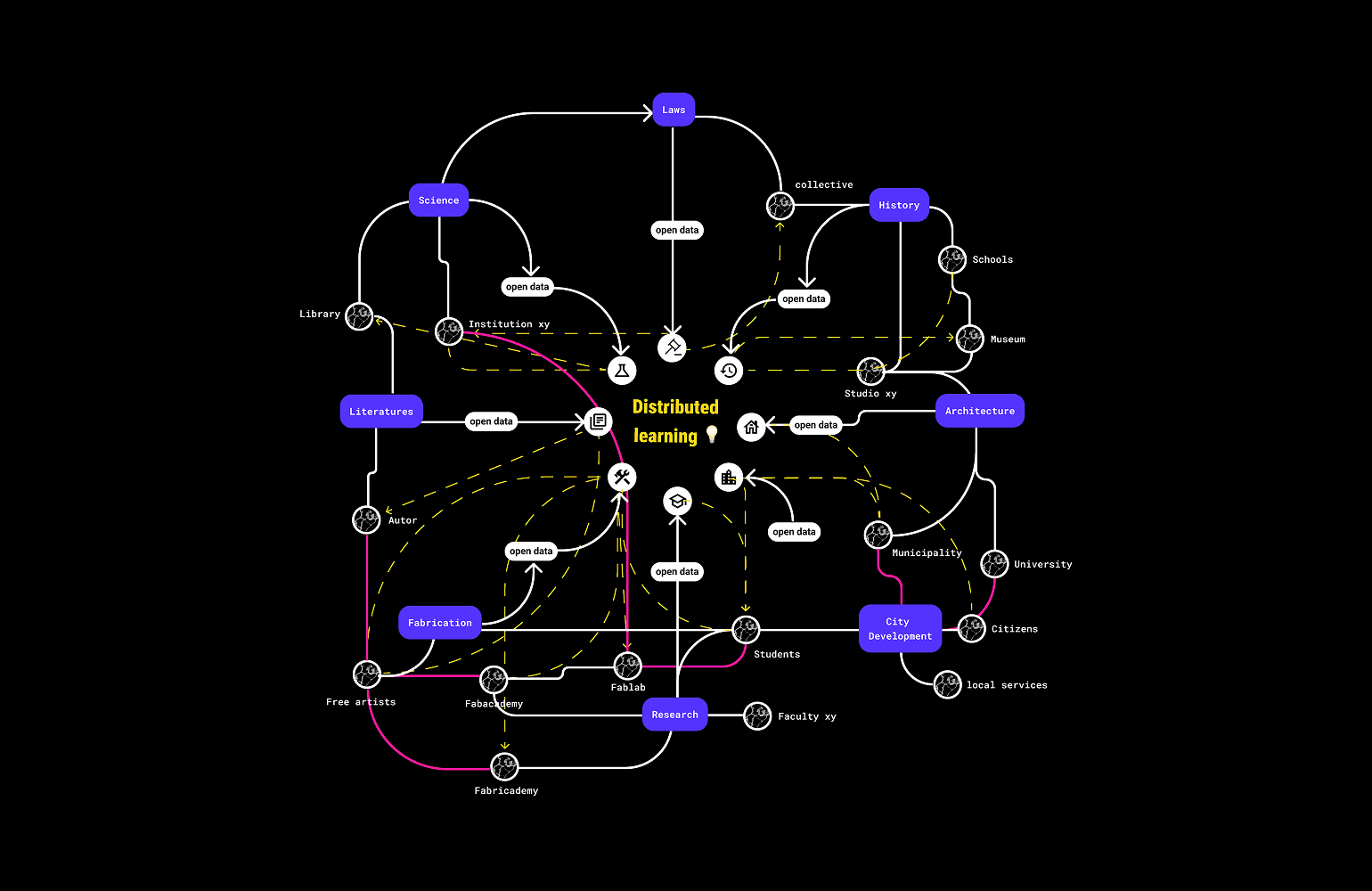Intelligence together
AI as a community-driven, iterative and locally adaptable system. An exploration of how intelligence can evolve through collective participation, informed by local insights and shared knowledge.
Recent Publications
Read News →Recent Developments
Principles that guide this Project
Principles that guide this Project
The core values and principles that guide everything we build and do.
Reuse
By integrating ollama, standard household computers with little to no graphics power can be reused and the energy consumption can be shared.
Data Ownership
local usability can enable the use of private data, allowing each user to co-decide which data is trained and which is not and what is shared with the system.
Community Governance
Power should be distributed, not centralized. We build tools that allow communities to govern themselves, set their own rules, and determine what matters most to them without relying on central authorities.
Transparent Technology
AI shouldn't be a black box that simply gives answers without explaining where the information comes from. Users should know how decisions are made and have the opportunity to influence these processes.
Accessibility
Advanced technology should be accessible to everyone, not just those with technical expertise or extensive resources. we pursue approaches that are intuitive, affordable and can be used by communities of all kinds without coding.
Environmental Responsibility
Through distributed approaches, the need for massive data centers and energy-intensive data processing is reduced. By utilizing local resources and optimizing processing, the system minimizes its ecological footprint.

Start your discovery
find out how it works →Accessible Intelligence for Everyone
We envision a world where AI development isn't monopolized by tech giants, but distributed across communities of researchers, developers, and users who maintain control over their data and computational resources.
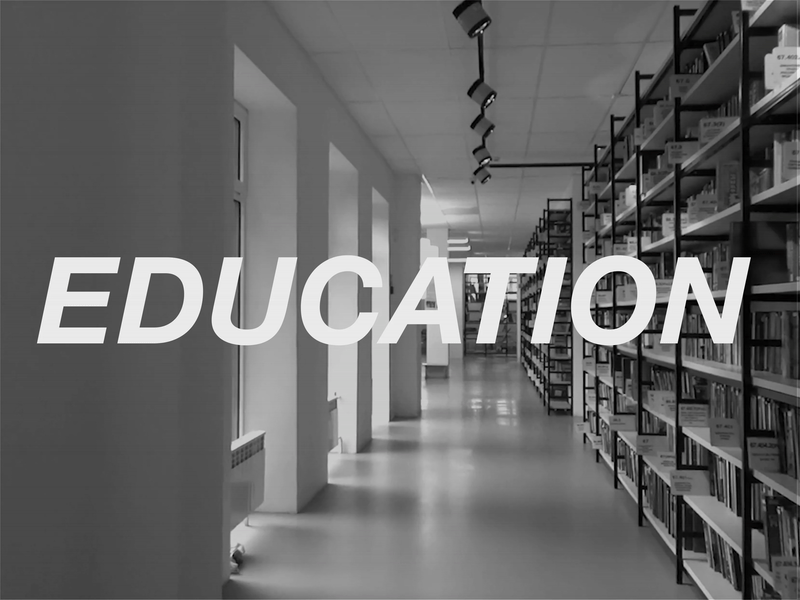
Technical Documentation
Dive deep into the technical foundations, core concepts, and implementation guides for building decentralized AI systems.
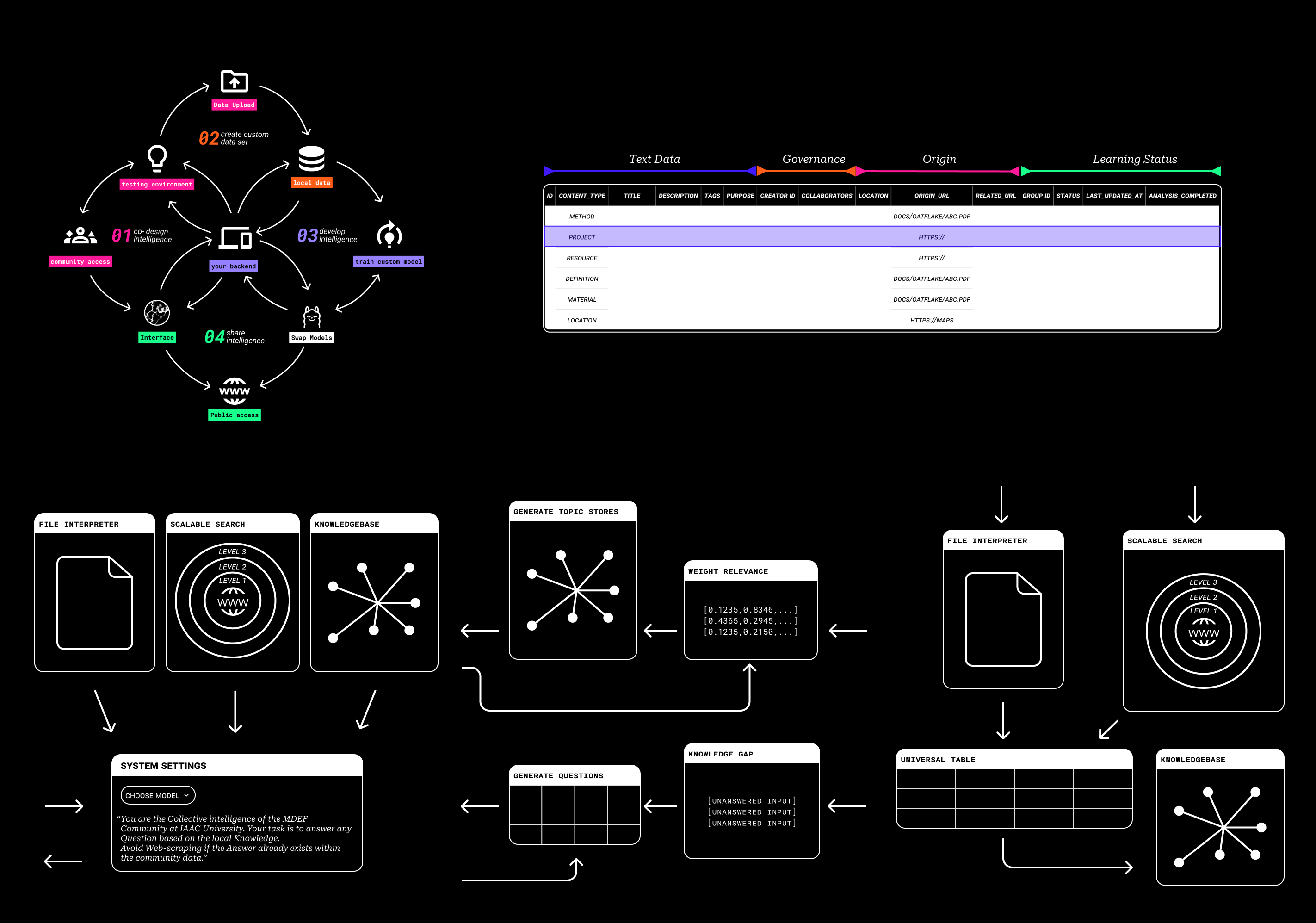
Core Concepts
Understand the fundamental principles of decentralized AI, federated learning, and distributed knowledge systems
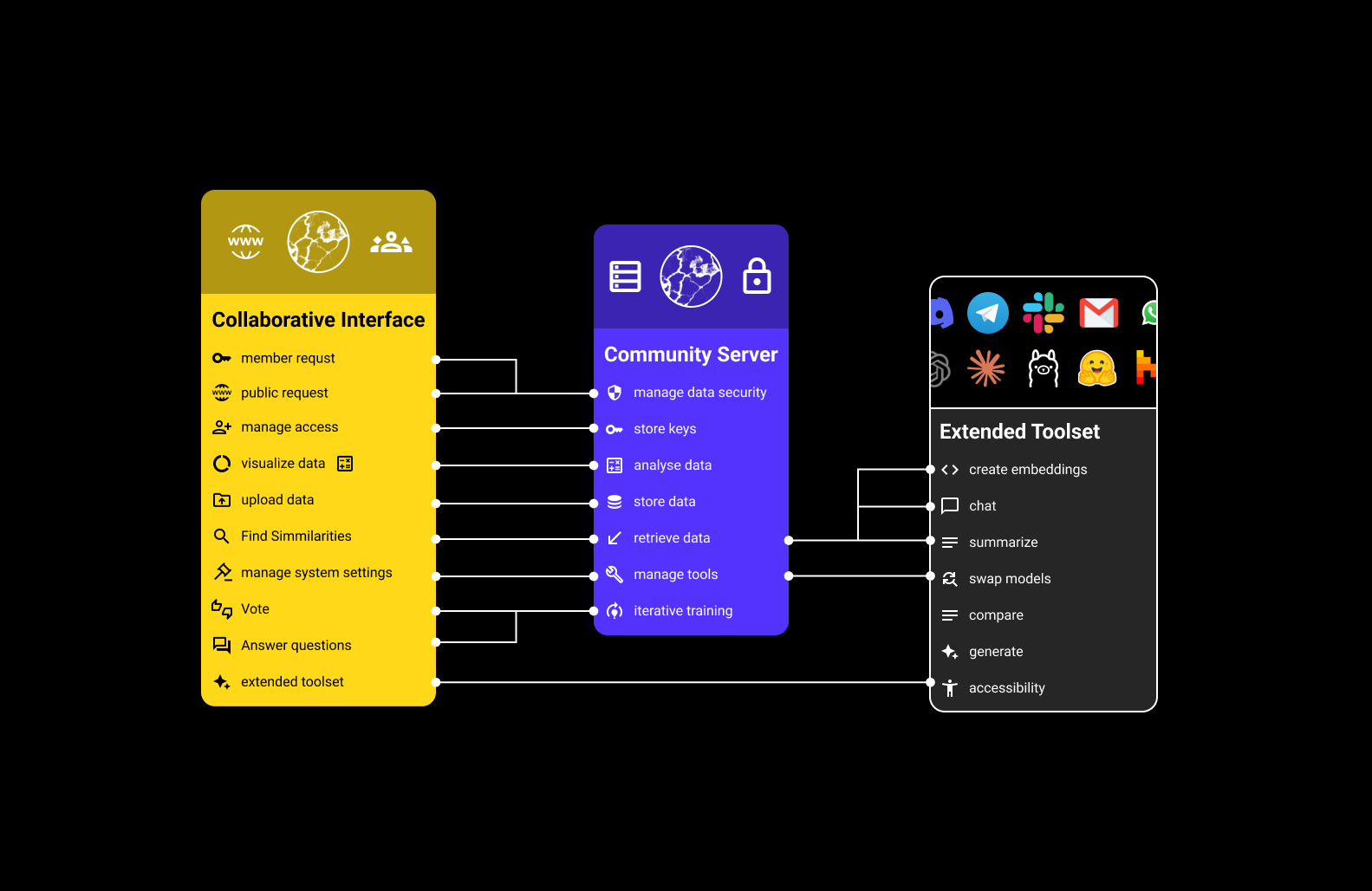
Architecture Guide
Deep dive into system architecture, protocols, and technical frameworks for building decentralized AI networks

Implementation
Step-by-step guides, code examples, and practical tutorials for implementing decentralized AI solutions
Join Our Community
Connect with researchers, developers, and AI enthusiasts building the future of decentralized intelligence.

Get in Touch
We're building a community of researchers, developers, and AI enthusiasts. Join the conversation or reach out directly.
